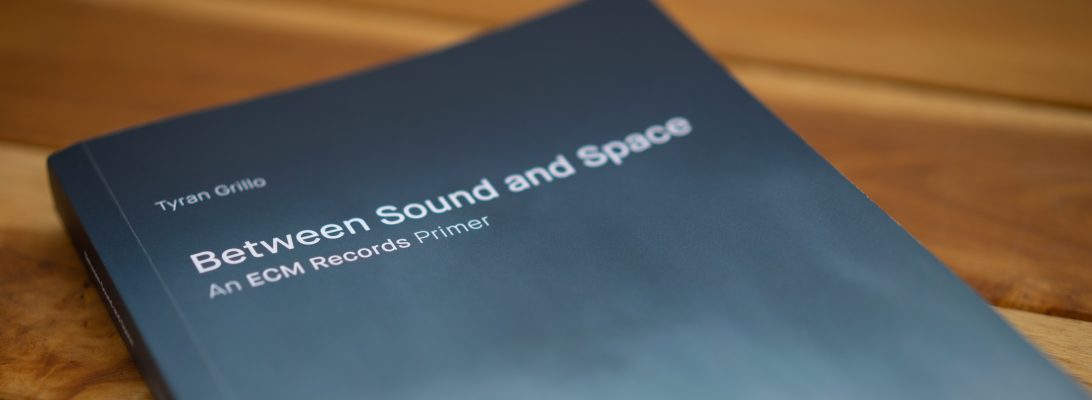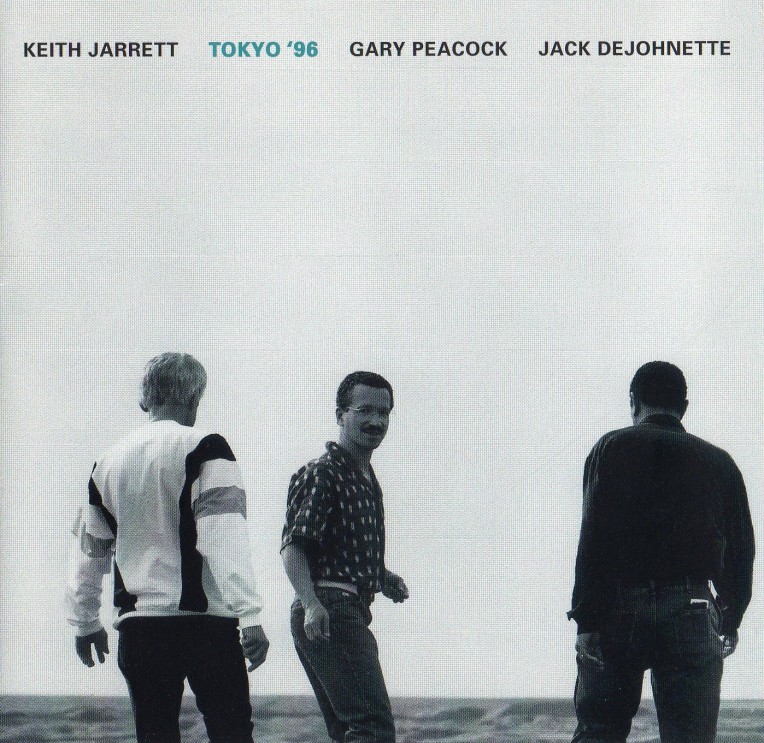Keith Jarrett Trio
Tokyo ’96
Keith Jarrett piano
Gary Peacock double-bass
Jack DeJohnette drums
Recorded March 20, 1996 at Orchard Hall, Tokyo
Engineer: Toshio Yamanaka
Produced by Manfred Eicher
Keith Jarrett’s trend-setting standards trio returns to Japan in celebration of its 15th year in this commanding live recording, which from bare pianistic threads spins an up-tempo version of “It Could Happen To You” to kick things off just right. With DeJohnette’s brushes flying and Peacock likewise enamored, free and easy exchanges abound. At this point we’re already hooked, so that “Never Let Me Go” becomes a mantra to guide us through the rest. There’s so much tenderness from Jarrett here, it’s a wonder he can emote with so little vocal breach. This, along with Peacock’s soulful slides, makes for one of the most heartwarming tracks in the trio’s output. Peacock’s early lepidopteran solo in “Summer Night” traces Jarrett’s masterful story arc word for word and shifts into high gear for “John’s Abbey” in a chain of powerful music-making. The trio’s sparkling rendition of “Billie’s Bounce” is a splash of cold water on the face. Jarrett’s right hand slaloms through the left’s gentle punctuations before a concluding solo from DeJohnette puts the icing on this positively exuberant cake. It’s one of a few standout moments from the drummer, who relays hand percussion and hi-hat in “I’ll Remember April” and leads the trio into an organic fadeout. All of which makes the relatively brief “Mona Lisa” a magical moment. Painting with a dark and bar-lit hue, its grandeur is obscured, embraced, inhaled.
Two tracks find Jarrett drawing improvised pieces from the energies at hand. “Last Night When We Were Young” blends into “Caribbean Sky,” while “My Funny Valentine” morphs into “Song.” In each there is a hip nostalgia, Jarrett’s sweeping gestures the perfect foil for every tectonic shift the rhythm section brings topside. Like a mountain shadow looming in the twilight, the latter offers especial solace, standing as a vestige of times we have yet to know. DeJohnette’s quiet rumblings are a distant thunder, even as Peacock’s restless song offers the promise of a new day.
Were it not for the due process this trio brings to every verdict, it might be easy to let these live recordings blend into one another. Yet these are cases without perpetrators, whose crimes are absolved the moment they are committed. Like a virus that adapts to vaccinations, their creativity spreads with an all-consuming will to be felt. Only here, rather than pain and decay, there is affirmation, resurrection, and spirit. We encounter this most vividly in “Autumn Leaves,” which in addition to being one of the trio’s signatures finds delicate balance here through Jarrett’s anticipatory style. Jarrett makes block chords blossom with melody, just as he deepens the single note. In the wake of such marvel, perhaps only this rhythm section can sustain the flame with the skill that Peacock and DeJohnette possess in spades. DeJohnette’s brushes in particular keep up with every roll, while Peacock’s excitations somehow ring contemplatively.
Jarrett and his band mates carry a tune without ever letting us forget that they wouldn’t be here without that tune to begin with. Whether through bold, linear lines or atmospheric touches, the trio puts melody over matter, because in the end melody is all that matters.


